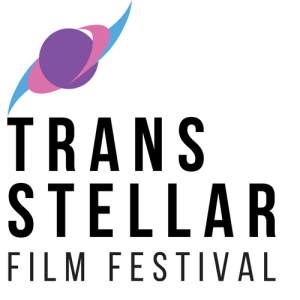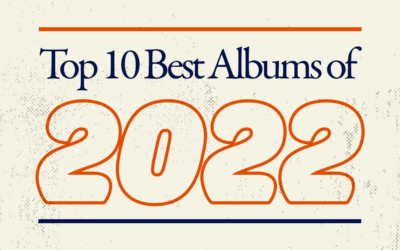Trans Stellar Film Festival

In November, I went to the USA and had a chance to have a chat with Lauren Corneliussen, the founder of Trans Stellar Film Festival. The yearly festival is based in Detroit, Michigan and focuses around LGBTQ+ filmmakers, to give them a safe space and platform to share their work. I speak to them about how the festival started, what they look for in a great film and their reasoning behind starting Trans Stellar.
Firstly, tell us a little bit about yourself and Trans Stellar.
I’m the president and founder of the festival, and it is an international, competitive film festival for LGBTQ+ identifying filmmakers. People submit films from all over the world and we choose which we believe are the best, and screen them for the public every autumn. Currently, we are the only queer film festival in the state of Michigan and 2019 was our 4th year.
What initially sparked your passion for wanting to curate this festival?
I’ve always wanted to show films. When I was little, I’d draw the curtains and make popcorn and even make fake tickets for my mother, and show her a surprise movie. As an adult, I earned my Bachelor’s in Cinema Studies. Then, in 2016, a friend approached me with the Trans Stellar logo and name. We were unsure of what we wanted, but this idea developed really quickly.
There aren’t a lot of community spaces in Detroit for LGBTQ+ people, and despite a growing interest in film, there aren’t many film programs in the city either. We host our festival at the only theatre in the downtown area, which covers over 7 square miles. We need more film, and we need more LGBTQ+ friendly spaces.
 Going back to the start of the festival, how did you initially put your plan into action?
Going back to the start of the festival, how did you initially put your plan into action?
A lot of research! I was able to talk to several other festival directors and connect with other organisers on Facebook through the Film Festival Alliance, and ask my professors for advice. It’s a lot of trial and error, but you don’t have to reinvent the wheel either – other creators want to talk to you.
40% of film festivals only run once, and we wanted to beat those odds. We spent 10 months researching and planning out the festival before ever going public, making bylaws and internal processes. We had a whole month of meetings where all we did was discuss what the values of our organisation were going to be.
Trans Stellar stands out and may be one of the only festivals of its kind due to being based around LGBTQ+ filmmakers. What made you decide to steer the festival in this direction?
This is a big question! I grew up in the non-profit industry and surrounded by disability advocacy and this is what really drew me to the idea of a community-focused festival. I found that so often, LGBTQ+ filmmakers are ‘stuck’ making gay movies, labelled as the director who only makes movies about being transgender, or bisexual, or whatever. True freedom in art means making whatever moves you, and of course it is often about these subjects, but it doesn’t have to be. They can be about astronauts, dinosaurs at the end of the world, or bowling – which are all films we’ve received!
The other reason is, in general, LGBTQ+ films made by people in the community I feel are just better and more nuanced. There’s less voyeurism and shock value, and more of a humanistic touch. A story about a trans woman stealing the moon by accident already has a more unique take than yet another Hollywood biopic.
What have been your favourite films that you’ve screened?
Oh, there’s so many! I really do love everything that we screen. Some of the ones that stick out for me personally are Sisak by Faraz Arif Ansari, Unbecoming by Navid Mashayekhi, and Paternal Rites by Jules Rosskam (Watch Here). Those are all quite heavy, but we do show comedies too, I promise!
What do you look for in a great film, when you look through submissions?
What do you look for in a great film at the cinema? It’s much the same, movies that make you cry, laugh and gasp. The things that sink films the most are bad acting, bad audio recording, and overused tropes. We’re fairly lenient with production value because we understand that not everyone has access to lighting rigs or expensive lenses. A small film with good actors, shot on a phone or digital camera can be better than something shot on a $10,000 camera with a full crew.
In this current political climate, both in America and also in the world, have you faced any challenges so far during the journey of curating this festival?
The community has actually been very supportive. The biggest issues have been international filmmakers who are legally persecuted in their own country (India) and countries with sanctions (Iran) and barriers accessing us online (China).
Of course there has been a lot of discussion and controversy over representation of LGBTQ+ individuals in the mainstream film industry, specifically characters being played be people outside of the community. What do you think can be done to combat this issue?
Directors have a bit of dictatorship on set, and supporting LGBTQ+ directors and producers can affect the entire production of a film. The person behind the camera is just as important as the person in front of it. If we can support administrators, directors, and producers, they’ll find the talent. There’s more than enough amazing LGBTQ+ actors available!
What are your goals for the future?
Right now, we are focused on a 6-year plan where the festival is self-sufficient and doesn’t rely on grants that can disappear at any time. I really want to be able to fly in filmmakers for interviews and Q&As after their films, as well as eventually be able to give out our own grants to local filmmakers and new projects. We want to be able to host year-round events such as networking, monthly screenings, and workshops.
What advice would you give to any LGBTQ+ filmmakers or enthusiasts who may be struggling to get their voice and work out there?
Keep creating and submitting! Find small festivals, reach out to them if you can’t afford the submission fee. Everyone is just trying to make it through this world together, reach out to people, even if you feel silly about it. Get a coffee with the coolest filmmaker in town, ask them what they’re up to. Find a friend who’s good at paperwork and enlist them to help you apply for art grants. Keep your films manageable and be realistic about what you are able to shoot with your budget and equipment.
Visit the Trans Stellar Website Submit Your Film Website
Words By Venita Cutler – 10/01/20
Leave A Comment
The WFTP Top 10 Albums of 2023
A list of WFTP’s favourite and most listened to albums of the 2023.
The WFTP Top 10 Singles of 2022
A countdown of the best singles heard by WFTP in 2022.
The WFTP Top 10 Albums of 2022
A countdown of WFTP’s favourite albums of the last year.


